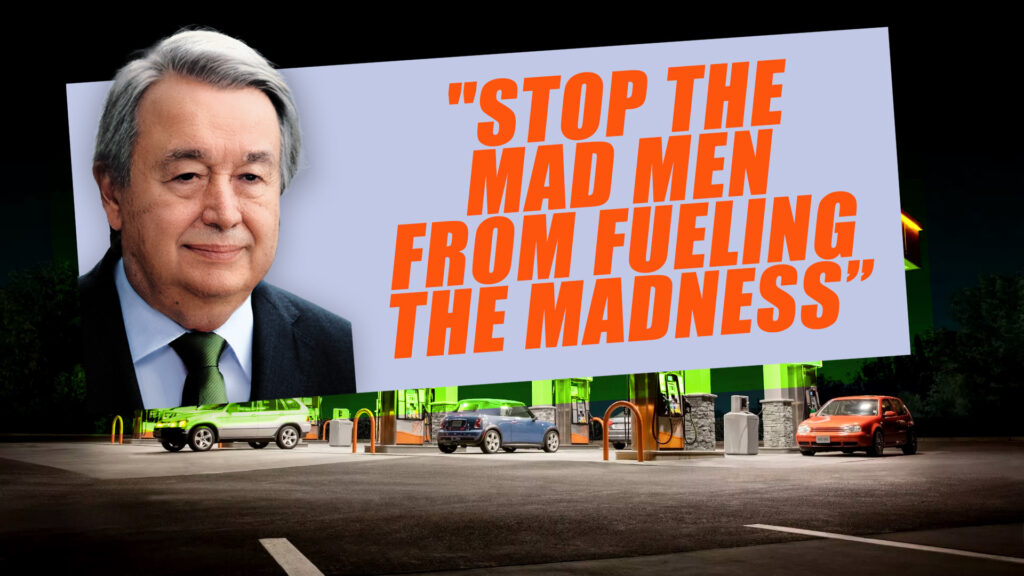- UN chief calls on governments, media, and tech companies to stop fossil fuel advertising.
- Some cities like Edinburgh and Sydney have already banned energy companies from advertising.
- Such a ban in the US would be difficult unless amendments to the constitution were made.
Earlier this month, United Nations secretary general, António Guterres, called on the world’s governments and media to stop taking dollars from the fossil fuel industry. The UN chief accused energy companies of “distorting the truth, deceiving the public, and sowing doubt” about the climate crisis. “Stop the Mad Men from fueling the madness,” he said.
Guterres’ comments come at a critical juncture for the automotive industry. Consumers are still apprehensive about electric vehicles, not least because many brand-new EVs are still considerably more expensive than their fossil-fuel-powered competition.
Read: Producing Batteries In Europe Instead Of China Could Cut Emissions By 37 Percent
The UN head calls for advertising restrictions to come into play, similar to what is enforced for tobacco and alcohol across the world. However, while tobacco advertising is primarily restricted to avoid influencing the impression minds of children have, fossil fuel advertising bans will aim to influence consumer behavior.
Some countries, cities, and companies have already started banning oil and gas firms from advertising. France limits the promotion of coal, gas, and hydrogen made from fossil fuels, while Amsterdam, Sydney, and Edinburgh also limit advertising from high-emissions enterprises. On the media’s side, The Guardian, Vox, and France’s Le Monde have all banned oil and gas advertising.

However, such restrictions may be harder to enforce at a national level for a country like the US. “Even if Congress attempted it, a fossil fuel ad ban would almost certainly collapse against legal challenges under current U.S. laws,” said Rebecca Tushnet, a First Amendment professor at Harvard Law School.
More: Toyota Has Developed A New Combustion Engine That Will Fend Off EVs For Years To Come
Speaking to Scientific American, Tushnet added that, barring a major shift in the Supreme Court’s interpretation of the U.S. Constitution, where commercial speech is protected by the First Amendment, a blanket federal ban on fossil fuel advertising would be hard to uphold.
A more realistic approach would be for the government to target fossil fuel companies that make misleading claims. However, with the UN’s Intergovernmental Panel on Climate Change requiring global greenhouse emissions to come to a net zero by 2050, there needs to be a greater shift away from fossil fuel advertising if targets are to be met.





